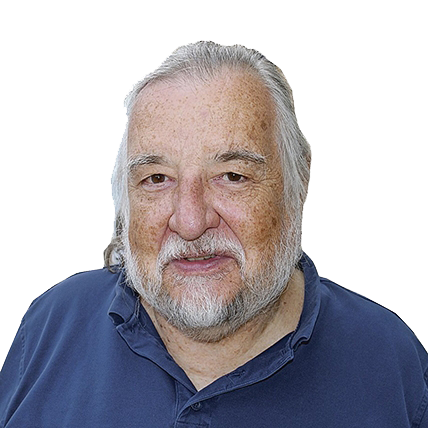It’s always interesting to find quality content in the Herald dealing with matters of governance that are disturbing to most Saskatchewanians, to the point wherein they lead into a legitimate debate, as opposed to the standard “I Hate Justin” tripe we keep hearing from CPC leader Pierre Poilievre, SP leader and premier Scott Moe, or the decreasing number of “Karen” members of the Saskatchewan “United” Party, led by former SP MLA Nadine Wilson. Wednesday’s article, “Saskatchewan’s Indigenous high school graduation rates largely unchanged since 2018: auditor”, is one such piece.
Written by the Leader Post’s Alec Salloum, the sheer bluntness of provincial Auditor Tara Clemett’s quoted words suggest that she is desperately attempting to avoid whatever anti-intellectual inference may be attached to the story by our right-wing parties, but without much success.
Starting from Grade 10 and over three years statistics show that only 60 per cent of Indigenous students will complete Grade 12, as opposed to over 90 per cent attending classes in the public sector. This factor also results in a considerably noticeable gap in the number of Indigenous unemployed (18.6 per cent v 5.6 per cent), and although these results were being reported upon the failure of the Ministry of Education’s 2018 strategic plan “Inspiring Success: First Nations and Métis PreK–12 Education Policy Framework”, no causal effect could be linked to its findings, simply because the plan offered absolutely no time frame within which to measure such objectives, nor whether such a task had even been recommended by the plan’s creators.
As an amendment to the “Inspiring Success – Building Towards Student Achievement: First Nations and Métis Education Policy Framework (2009)”, its objectives appeared to be addressing the proper educational needs so as to bridge the differentials between learning through First Nation and/or Metis methodologies versus the Euro-centric manner in which such knowledge is presented, and our dire needing to share such knowledge, methodologies and cultural expectations addressed.
In Dr. Marie Battiste’s words, “Indigenous knowledge is inherently tied to…particular landscapes, landforms and biomes where ceremonies are properly held, stories properly recited, medicines properly gathered and transfers of knowledge properly authenticated.”
Unfortunately for Ms. Clamett, but amusing nonetheless, I HAVE seen a significant amount of the information the Auditor now seeks – within the contents of my Master’s thesis, published in 2007. I even quoted certain facts pertaining to her inquiry in a publication expected to be released by the Prince Albert – DENE on or about June 26, 2023, reflecting the SAME concerns as she, BUT with reference only to the Harper government’s 2014 and 2015 release of his First Nations Student Success Program (FNSSP), put into play in 2014 and 2015.
Equally frustrating, were the Auditor pursue this matter to the federal level, she would invariably find first that, while Indigenous Services Canada did collect such data, the “Spring 2018: Reports of the Auditor General of Canada to the Parliament of Canada”, and “REPORT 5: Socio-economic Gaps on First Nations Reserves—Indigenous Services Canada” ALSO did not report results coming from the FNSSP, and probably never will,
It concluded an overwhelming number of teachers yielded some substantial “positives” to mathematics learning through their teaching efforts. That included Ms. Eva Satra, Mr. Wayne Branton and myself, who were performing such tasks in Hatchet Lake, where our school’s results exceeded an 1,100% improvement. The result that could have been even higher, IF most male students had even bothered to show up for the final examination.
Looking at the 2009 release of the “First Nations and Métis Perspectives and Ways of Knowing” legislation the study wasn’t really asking for much. Something had to be done to recognize the role Indigenous kids played in the educational process (and was) but the message that the public as well as both the Assembly of First Nations (AFN) and the Federation of Saskatchewan Indigenous Nations (FSIN) received from Scott Moe’s government was for them to not expect the province to recognize Nov. 30 as a National Day for the Discovery of Truth and Reconciliation for the nation any time soon.
Canada’s Constitution allows the province to “administer” federal education processes, define curriculum and grant degrees, which they’ll gladly do, just so long as those duties do not require them to fund their perpetual screw-ups; if you’re looking for money, talk to the feds; that’s their “responsibility”.
Actually, we should be thanking Ms. Clemett for “exposing” this data deficient situation, especially since the graduation level “problem” is not only resurfacing among Indigenous students’ results, but is also trending in Saskatchewan’s smaller school districts. Provincial education authorities, without any form of supporting “evidence” maintain that the ideas that consultants such as those with whom I work are failing to incorporate “fresh” programs that further “stimulate” students to succeed, as what we’re doing, even within the Job Readiness program work with the Prince Albert Grand Council – DENE is considered to be “same old, same old”; mine is more like “You don’t know what the Hell you’re talking about.”
There’s no “arrogance” meant here. Today, even the quietest of teachers having legitimate reason for educational reform make themselves potential targets for recrimination, when it’s far less stressful in silently waiting for them to finish their point of view.
On June 30, I will ask PAGC – DENE to release my 30 point response towards radically revising the senior high school credit list and imposing change within the classroom, including asking teachers at the lower elementary levels to resign and make way for more potential role models more suitable to that profile of excellence.
Should Ms. Clemett in the meantime wish to discuss her concerns as to missing data coming from high school probing into the graduation rates of our northern high schools, I will be more than happy to set aside time for the task.
As well, thank you, Alec Salloum, for writing this piece up so that the issue can receive the critique it deserves.


